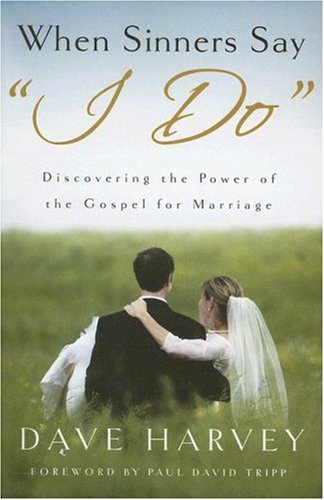
Quotes by Dave Harvey
Sloth is a romance killer. Even the word chills the air. By sloth I mean laziness with respect to marital intimacy. The most common fruits of this heart condition are passivity and unresponsiveness. We begin to let our appearance go. We grow comfortable with bedroom boredom. We tolerate a lack of desire and settle for one partner doing all the initiating.
Bitterness is one of the most common causes of neglected sex. From the soil of anger and unresolved conflicts, a grows quickly into a virulent weed that chokes out intimacy. Married people turned bitter use their bodies as a weapon, a weapon that harms by withholding. A weapon used to punish the other person for sinning against us. This calls for forgiveness.
The joy that springs from pleasing our husband or wife is one reason sex was never designed to be a solo pursuit. Biblical sex, with its joyful service and the matchless intimacy born from it, is a glorious expression of what we are intended to be – male and female, created in God’s image to enjoy intimacy of relationship in its deepest possible expression.
There may be no area more thought about and less talked about in a marriage than sex.
The strengths and weaknesses of a marriage are often more obvious in the bedroom than anywhere else.
Zeal is desire on steroids… Zeal is deep desire that defines how we live and reveals what we love.
There is a glorious sequel to saving, justifying grace. The grace that justifies (declaring us holy in God’s sight) becomes the grace that sanctifies (making us ever more holy in daily life). It is a prevailing, unstoppable grace that doesn’t close up shop the day after the sinner’s prayer. It’s the power of God to help us overcome sin, and a potent weapon in the fierce struggles that accompany life after the honeymoon of conversion. Conversion, like a wedding, is hardly the end of the story – it’s just the beginning.
Meekness has nothing to do with being weak or passive. Meekness is power harnessed by love. It is an expression of humility that will not bristle or defend when challenged about motives.
Feelings of sorrow alone aren’t necessarily conviction. We can be sorrowful for many reasons, including selfish ones. We can be sorry for the bad consequences of our sin, sorry we were caught, sorry we lost someone’s respect. The kind of worldly grief can’t begin to address the true offense of sin, and it can’t begin to change us [see 2 Cor. 7:8-9]. Only godly grief brings repentance. And only repentance testifies to the surgical effect of God’s truth applied to our sinful hearts.
The most helpful reproof frequently comes in the form of open (not leading) questions, because questions create the dialogue that invites more penetrating observations.
The one thing we do know is that we don’t even know what we don’t know.
Forgiveness is not the stuff of an extraordinary saint. Forgiveness is at the heart of the Gospel and therefore is to be a defining characteristic of every believer
The “size” of a sin is not ultimately determined by the sin itself, but by the one who was sinned against. Sin is infinitely wicked because it rejects the one who is infinitely holy and good. The more we recognized the perfection of God’s holiness, the more obvious this truth becomes.
Self-righteousness is a sense of moral superiority that appoints us as prosecutor of other people’s sinfulness. We relate to others as if we are incapable of the sins they commit. Self-righteousness wages war against mercy.
Forbearance doesn’t mean we tuck sin away for another time. It is not a variation of patience nor is it some Christianized, external “niceness” where you pretend nothing bothers you. It’s not even a kind of ignoring the sin, in the sense of refusing to acknowledge it. In forbearance we know (or at least suspect) we have been sinned against, but we actually make a choice to overlook the offense and wipe the slate clean, extending a heart attitude of forgiveness, and treating the (apparent) sin as if it never happened. Proverbs 19:11 tells us it is a “glory to overlook an offense.” Forbearance is preemptive forgiveness, freely and genuinely bestowed.
Mercy is given to be shared. And what it touches, it ultimately sweetens. We are to pass along what we have received from God – steadfast love, inexplicable kindness, overflowing compassion. We sinned against God and He responded with mercy. We are called to go and do the same.
Mercy doesn’t change the need to speak truth. It transforms our motivation from a desire to win battles to a desire to represent Christ. It takes me out of the center and puts Christ in the center.
Mercy explains how a holy and loving God can relate to sinners without compromising who He is.
Blame-shifting will fool some of the people some of the time, but it will never fool God any of the time… Blame-shifting is what I do when I basically know I’m guilty and am just trying to convince myself or someone else that maybe I’m not.
Avoid the off-ramp of self-righteousness. Integrity calls you to suspect and inspect your motives. Are you really doing this to bless, encourage, and help? Or do you actually have a strong interest in chalking up a few points for the home team? Do you hope to be proven right? To be vindicated? To emerge as spiritually superior? Who are you intending to serve – [the other] or yourself?
There still remains the powerful, active, influence of sin within us. It is presented as a “law” [Rom. 7:23] because that is how it operates within us – it seeks to command and subdue us; it insists upon adherence; it targets our desires to do anything holy.
The Gospel is the heart of the Bible. Everything in Scripture is either preparation for the Gospel, presentation of the Gospel, or participation in the Gospel.
It’s a wonderful, freeing thing to realize that the durability and quality of your marriage is not ultimately based on the strength of your commitment to your marriage. Rather, it’s based on something completely apart from your marriage: God’s truth; truth we find plain and clear on the pages of Scripture.

